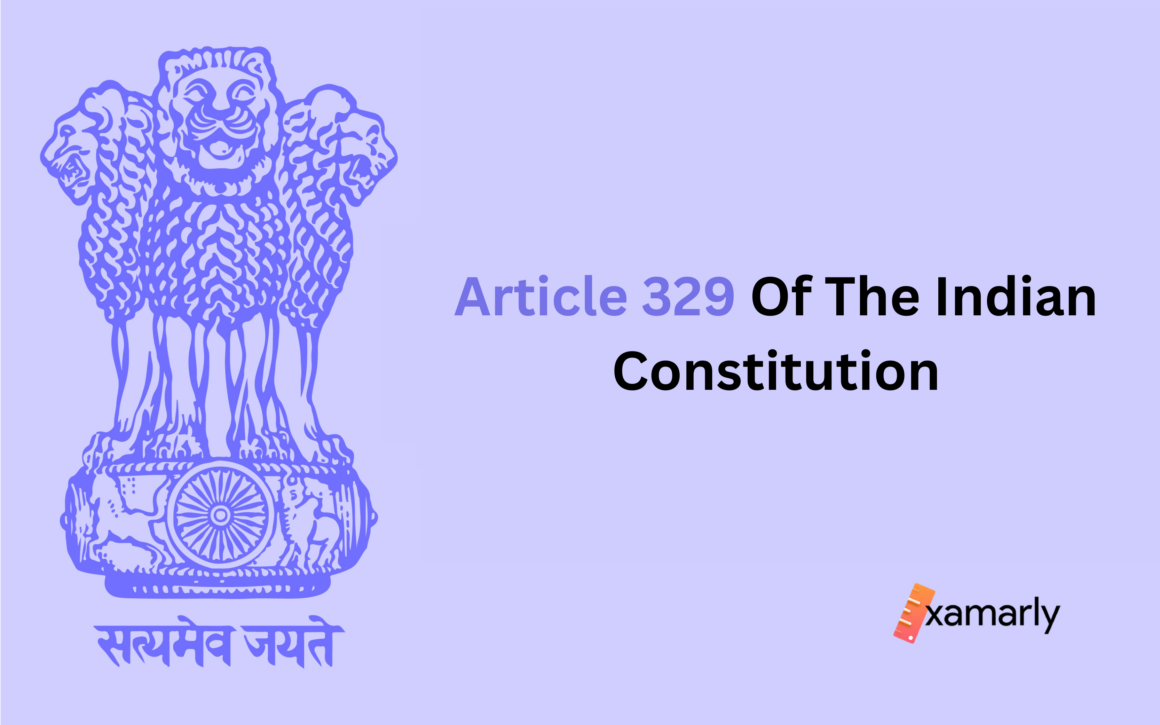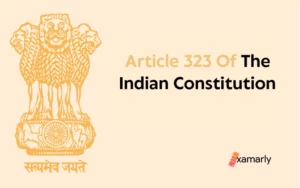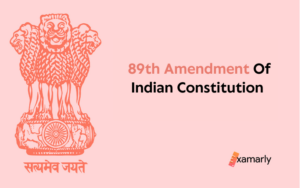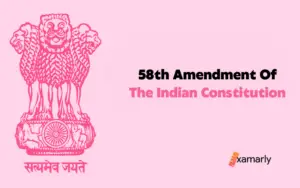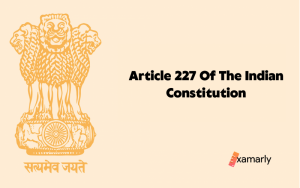Article 329 of the Indian Constitution reflects on the power and authority of the provisions that are made in Article 327 and Article 328 of the Indian Constitution.
It talks about how the provisions that are made in the above-mentioned Articles can never be challenged in any court of justice.
Let us dig deep into Article 329 of the Indian Constitution and have a better understanding of what is being said and done in the Article.
- Article 329 Of The Indian Constitution – In Detail
- Summing Up
- FAQs
- What is an election petition in India?
- Who can file an election petition?
- What are the grounds for filing an election petition?
- Where is an election petition filed?
- What is the time limit for filing an election petition?
- What is the process of an election petition?
- What is the outcome of an election petition?
- Are election petitions subject to appeal?
Article 329 Of The Indian Constitution – In Detail
We will break down the clauses present in this Article to have an in-depth understanding of all the clauses and provisions.
The Clause – As it is & Explained
329. Bar to interference by courts in electoral matters Notwithstanding anything in this Constitution
(a) the validity of any law relating to the delimitation of constituencies or the allotment of seats to such constituencies, made or purporting to be made under Article 327 or Article 328, shall not be called in question in any court;
(b) No election to either House of Parliament or to the House or either House of the Legislature of a State shall be called in question except by an election petition presented to such authority and in such manner as may be provided for by or under any law made by the appropriate Legislature
The clause in Article 329 of the Indian Constitution pertains to the role of the judiciary in electoral matters and lays out two key provisions:
(a) The validity of any law relating to the delimitation of constituencies or the allotment of seats to such constituencies, made or purporting to be made under Article 327 or Article 328, shall not be called in question in any court. This means that any law that is passed related to the boundary lines of electoral districts or the number of seats that each district is allotted for representation, as authorized by Article 327 or Article 328 of the Indian Constitution, cannot be challenged in any court.
(b) No election to either House of Parliament or to the House or either House of the Legislature of a State shall be called in question except by an election petition presented to such authority and in such manner as may be provided for by or under any law made by the appropriate Legislature. This means that any questions or challenges related to the conduct or results of an election to any of these bodies can only be made through an “election petition” as specified by law, and can only be presented to the authority that is designated by that law.
Overall, this provision of the Indian Constitution limits the powers of the judiciary to intervene in electoral matters and seeks to give authority to the appropriate legislation to regulate such matters.
Summing Up
In a nutshell, the Indian Constitution, specifically Article 329, stipulates that the judiciary is not allowed to challenge the constitutionality of laws relating to the boundaries of electoral districts or the allocation of seats, and that any challenges to the conduct or results of elections to the Houses of Parliament or state legislatures must be made through a designated legal process that is referred to as a “election petition.”
This article places restrictions on the involvement of the judiciary in electoral concerns and grants the authority to regulate those matters to the appropriate legislature.
FAQs
What is an election petition in India?
An election petition is a legal challenge to the conduct or results of an election. It is filed with the appropriate authority, as specified by law, and is used to question the validity of an election or to seek relief for alleged violations of election laws or corrupt practices.
Who can file an election petition?
An election petition can be filed by a candidate who contested the election, an elector from the same constituency, or any person who has the permission of the Election Commission.
What are the grounds for filing an election petition?
An election petition can be filed on the grounds of corrupt practices, illegal practices, non-compliance with election laws, and errors in counting votes.
Where is an election petition filed?
An election petition is filed with the High Court of the state in which the constituency is located. In the case of a parliamentary constituency, the petition is filed with the High Court of the state in which the majority of the assembly constituencies are located.
What is the time limit for filing an election petition?
An election petition must be filed within 45 days from the date of the election result.
What is the process of an election petition?
The process of an election petition includes the filing of the petition, service of notice on the respondents, filing of the written statement by the respondents, examination of witnesses and production of evidence, and the final judgment.
What is the outcome of an election petition?
The High Court can declare the election to be void if it finds that the election laws have been violated or that corrupt practices have affected the outcome of the election. It can also order re-election, declare a different candidate to be elected, or dismiss the petition.
Are election petitions subject to appeal?
The decision of the High Court can be appealed to the Supreme Court of India within 45 days of the judgment.


